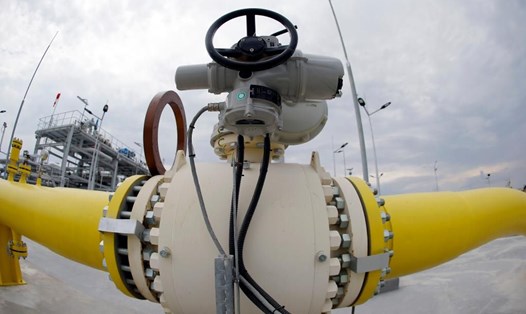The European Union (EU) imported 16.5 million tonnes of liquefied natural gas (LNG) from Russia as of mid-December 2024, surpassing last year's 15.18 million tonnes and breaking the record of 15.21 million tonnes in 2022, the Financial Times reported.
“This is surprising,” said Ana Maria Jaller-Makarewicz, an analyst at the Institute for Energy Economics and Financial Analysis (IEEFA). “Instead of decreasing, we are increasing our imports of LNG from Russia.”
This goes against the EU's goal of completely ending fossil fuel imports from Russia by 2027.
Although the EU has banned imports of Russian oil and coal and significantly reduced pipeline gas, Russian LNG is still allowed in. Currently, 20% of the EU’s seaborne LNG imports come from Russia, up from 15% in 2023.
Part of the reason is that LNG prices from Russia are significantly lower than those from the US. According to Christoph Halser, gas analyst at Rystad Energy, LNG from Russia’s Yamal terminal is priced much lower than similar cargoes from the US.
In addition, LNG transactions on the spot market also increased, accounting for 33% of Russian LNG imports into the EU this year, compared to 23% last year.

France and Belgium are leading importers of Russian LNG. LNG imports from Russia to France are set to double by 2023, with more than half of the shipments going to the port of Dunkirk. Companies such as EDF and TotalEnergies continue to use the infrastructure there.
Meanwhile, the port of Zeebrugge in Belgium plays a key role in transferring LNG from icebreakers to regular ships to continue the journey.
The EU has adopted a ban on the transfer of Russian LNG from Yamal to countries outside the EU, expected to take effect from March 2025.
The EU's new energy commissioner, Dan Jørgensen, has pledged to present a plan next year to cut Russian fuel by 2027. But with cheaper Russian LNG and more stable supplies, the EU still faces a difficult problem: ensuring energy security without depending on Russia.
In addition, pressure from the US has also increased as President-elect Donald Trump threatened to impose trade tariffs if the EU does not significantly increase oil and gas imports from the US.
The record increase in LNG imports from Russia shows the tension between the EU’s real needs and political commitment. Meanwhile, Russian LNG remains a challenging problem on the European scale.











